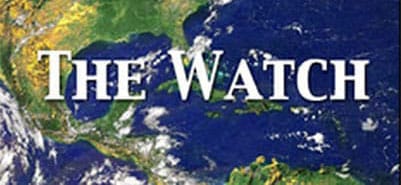Using Simple Models in Climate Change Education
During this presentation Dr. Randy Russell, a science educator at the National Center for Atmospheric Research (NCAR) explored some fundamental concepts of climate science that allow students to use simple models to actively investigate them. He began with a basic calculation of the "theoretical" global average temperature of our home planet - first walking through the science and math behind the calculations, then using a simple computer-based model that allows students to explore multiple "what if" scenarios. Next, he looked at the Greenhouse Effect's impact on global temperatures and presented a physical model illustrating the Greenhouse Effect and the layered structure of Earth's atmosphere. Then, Dr. Russell presented how some straightforward math connects anthropogenic greenhouse gas emissions with future global temperatures - and then explored another computer-based simulation that allows students to test the impact of various emission scenarios on future global temperatures. Finally, Dr. Russell took a look at an extensive online list of simulations, games, and virtual labs for climate education.

Randy Russell is passionate about creating and using educational simulations and games in a range of science education disciplines. He develops games and simulations - mostly computer-based, but some more traditional card and board and etc. games - for use in STEM education. He also presents numerous teacher professional development workshops on topics related to simulations, modeling and games, including both face-to-face presentations as well as via online venues such as webinars and online courses.
His original background is in science (B.S. astrophysics, Michigan State University) and engineering (M.S. aerospace engineering, U. of Maryland). He became interested in STEM education and earned his doctorate in Educational Systems Development from Michigan State.
Dr. Russell has been developing educational resources at NCAR for 12 years. He created hundreds of web pages about climate, atmospheric science, space weather, and various other topics for the Windows to the Universe web site while it was hosted at NCAR. He has presented numerous workshops at NSTA conferences, co-authored and/or taught more than 20 online courses spanning a range of STEM topics, worked with numerous science educators to develop computer-based interactives for TERC's Exploring Earth project, and led a microbiology education project called the Microbe Zoo.
His current work focuses on the development of simulations, games, and modeling resources covering climate, weather, atmospheric science, and related Earth system science disciplines. He believes that students learn best when their minds are active and they are making decisions, and that simulations and games provide opportunities for students to be active learners. He also thinks students should get outside in the real world a lot!
Education
Webinar Archives Education ResourcesStewardship
Supporting Stewardship Past Projects Focus Area Resources Applying for Funding
Search Education
Get Social
Last updated: 06/16/24
Author: NOAA
How to cite this article
